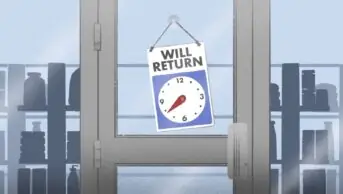
Shutterstock.com
“Urgent talks” are taking place between pharmacy negotiators and the government on how funding from the new community pharmacy contract will be distributed, the Pharmaceutical Services Negotiating Committee (PSNC) has said.
The PSNC has also told pharmacists that it will publish “indicative income tables” once funding details have been agreed, to allow contractors predict what their incomes are likely to be over the next financial year.
This follows the publication of a ‘profit and loss predictor’ — a tool which predicted the closure of some community pharmacies after three years of the new contract — developed by Hemant Patel, secretary of North East London Local Pharmaceutical Committee (LPC).
Patel said the tool, which was designed to assess the financial effect of the contract, had been trialled by 14 contractors in his area, and 8 of them said it showed they would go out of business after three years of the contract’s lifespan.
He added that the contract’s shift to help community pharmacy provide a broader range of clinical services would not generate enough money to make up for the level of funding lost through the abolition of existing finance streams, such as establishment payments and medicines use reviews.
The tool uses data including the number of prescription items contractors dispense each month; their funding from quality payments, NHS enhanced services and other sources; rent, business rates and other business expenses. However, it does not allow pharmacists to include extra revenue from the new clinical services covered by the contract, or the community pharmacist consultation service.
“While the PSNC has done the best it can, contractors now have three options,” Patel said.
“One, to sell up and get out; two, to carry on fighting; or three, possibly merge with other pharmacies in their areas.”
Mike Dent, director of pharmacy funding at the PSNC, agreed that the next five years were going to involve “significant changes for all community pharmacies” that may involve “difficult conversations and decisions”, including the possibility of branch closures for larger businesses or consolidations for some smaller businesses.
But he said the ongoing discussions with the Department of Health and Social Care over funding meant that “any tool developed prior to the conclusion of these negotiations is unlikely to be able to deal with the huge number of variables in a changing economic landscape”.
“It is for this reason that PSNC has refrained from [producing such a tool],” he added.
“The PSNC, therefore, recommends that contractors sit down with their accountants and get a professional bespoke view of their businesses.”


